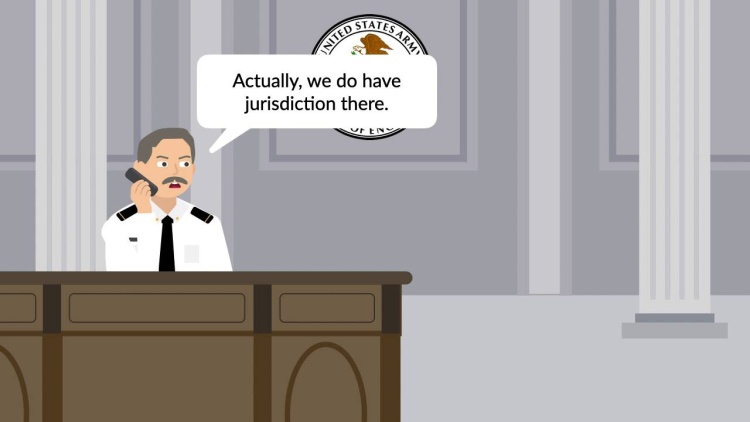Solid Waste Agency of Northern Cook County v. U.S. Army Corps of Engineers
United States Supreme Court
531 U.S. 159 (2001)
- Written by Angela Patrick, JD
Facts
The Solid Waste Agency of Northern Cook County (SWANCC) (plaintiff), a group of cities and municipalities, purchased a former mining pit (the site) to develop a solid-waste-disposal site. The site contained permanent and seasonal ponds of varying sizes. SWANCC began obtaining permits, including contacting the United States Army Corps of Engineers (corps) (defendant), a federal administrative agency, to determine whether a federal permit was required under § 404(a) of the Clean Water Act (CWA). Initially, the corps determined that the CWA did not apply to the site because the ponds were not navigable waters as defined in the CWA. However, after learning that the site contained several species of migratory birds, the corps applied its migratory-bird rule to assert jurisdiction under the CWA. The migratory-bird rule was an administrative rule developed by the corps that extended the CWA’s reach to waters used as habitat by migratory birds, even isolated, intrastate waters. The corps rejected SWANCC’s permit request. SWANCC sued in federal court, arguing that the CWA did not apply to the isolated, non-navigable waters in its fill site. The district court granted judgment to the corps. The court of appeals affirmed. The United States Supreme Court granted certiorari.
Rule of Law
Issue
Holding and Reasoning (Rehnquist, C.J.)
Dissent (Stevens, J.)
What to do next…
Here's why 907,000 law students have relied on our case briefs:
- Written by law professors and practitioners, not other law students. 47,100 briefs, keyed to 996 casebooks. Top-notch customer support.
- The right amount of information, includes the facts, issues, rule of law, holding and reasoning, and any concurrences and dissents.
- Access in your classes, works on your mobile and tablet. Massive library of related video lessons and high quality multiple-choice questions.
- Easy to use, uniform format for every case brief. Written in plain English, not in legalese. Our briefs summarize and simplify; they don’t just repeat the court’s language.






